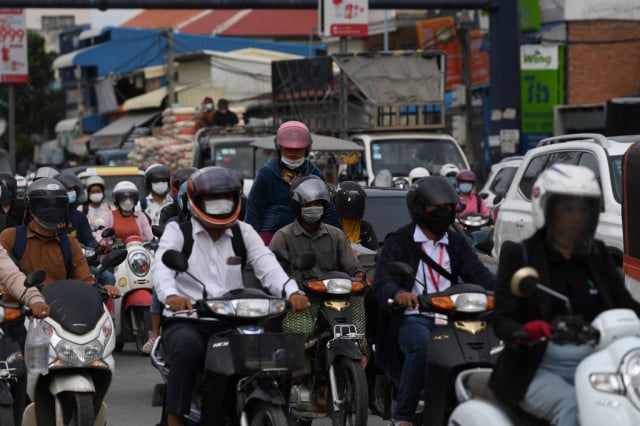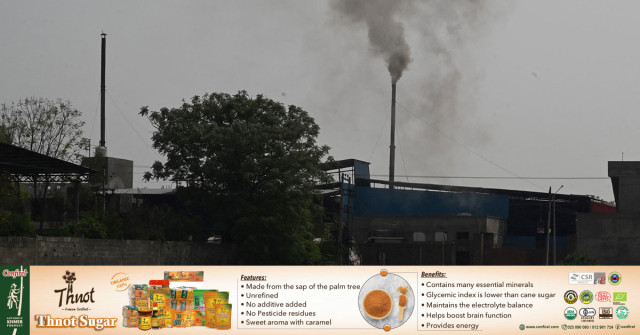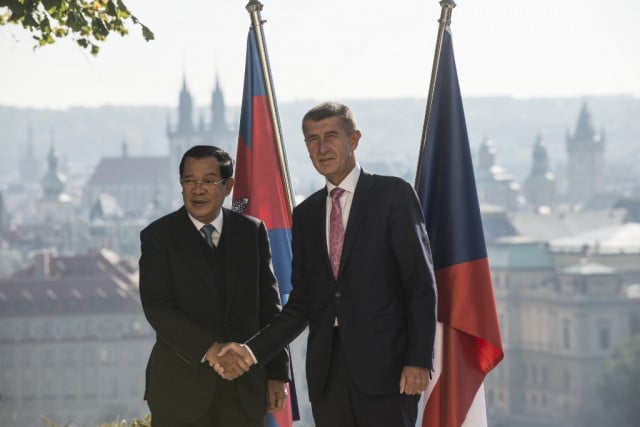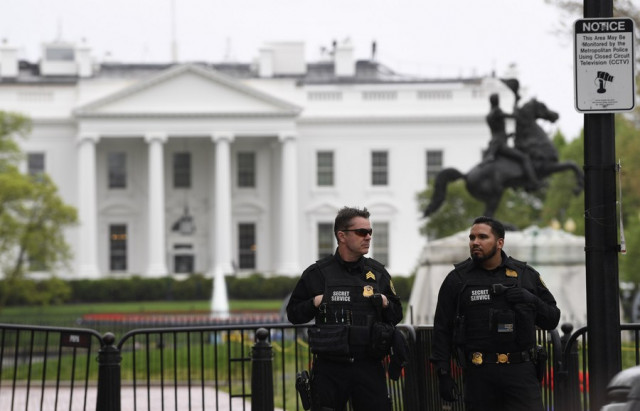WHO Warns Against COVID-19 Recklessness

- By Teng Yalirozy
- September 8, 2021 3:53 PM
Anti-infection measures slip amid pandemic fatigue
PHNOM PENH--People are failing to stick to COVID prevention measures as the pandemic drags on, which could result in new Delta-style variants, the World Health Organization Representative Office for Cambodia warns.
“Twenty months into the pandemic, people are weary. They struggle to comply with movement restrictions,” WHO Cambodia said on Monday. The virus is still being transmitted unnoticed even if the vaccines protect against serious disease,
“These factors tend to lead people to drop their guard and return to the old ways of interacting with one another, ways through which a very transmissible variant can wreak havoc,” it said.
Ken Chanthon, a resident in Poipet province, said he is now less worried about infection than he was when the pandemic first hit Cambodia.
“I’m no longer afraid, and when I go to the market, people there don’t really use alcohol spray. We shop normally like we used to do without much caution,” Chanthon said.
Fear of the pandemic has gradually faded and he does not follow preventive measures strictly.
He had seen that people do not wear masks properly, and sometimes they do not wear them at all when interacting with each other. He said also that people do not usually maintain good hygiene.
However, Chanthon said people may have found ways to protect themselves from infection. He had prepared some medicines and drugs to be used when needed.
As of September 7, Cambodia recorded 96,935 COVID-19 cases with 92,015 people having recovered. The disease has claimed the lives of 1,987 people in the country.
A first vaccine dose had been given to 11,328,393 people, including 1,690,940 children and adolescents, while 9,079,671 people have had both doses, and 696,229 had their third.
Despite infection and vaccination statistics showing that the situation is improving, the likelihood of an outbreak is high, the WHO said.
“Like many countries, Cambodia has been racing against more transmissible variants throughout 2021,” it said.
“Recently Delta was detected among migrants returning through land borders and has now been detected among residents of most provinces.”
Reboot the strategy
In mid-2021, the Health Ministry with help from the WHO, began to review the strategy to prevent new infections.
The new approach is to reboot the strategy, in which keeping families and communities safe is a core value.
“The joint Ministry of Health – WHO missions engaged all provinces to explore successes and challenges of their response and generate feasible solutions to suppress transmission and promote health and socio-economic recovery in this new phase,” the WHO said.
In August, the WHO provided technical and financial support to the Ministry of Health and local authorities to launch renewed community engagement initiatives in nine provinces.
These initiatives are more than raising awareness and education. Information and decision-making skills will be provided to citizens to make proper decisions that will secure their lives.
Another key factor in the rebooted strategy is to prioritize local responsibility. The open-air market is an example of a feasible local solution.
“In Kandal province, local leaders moved a market on to a sports field while limiting the number of shoppers to ensure physical distancing. In Siem Reap, local leaders spread a market along a road to ensure optimal distancing,” the WHO said.
The ministry had recently also launched a nationwide communication campaign under the theme of “Acting together to stop COVID-19 transmission”.
“A key aspect of this campaign is community engagement and individual responsibility and right choice for preventing the spread of the virus in households and the community.”
Dr. Li Ailan, WHO representative to Cambodia, said the implementation of risk-based decisions with insights into the social and cultural context of the Royal Government of Cambodia’s strategy is outstanding.
“For example, recent social listening research shows that in Cambodia people worry more about the health of their loved ones than their own. This is a powerful motivator to make individual right choices to take COVID-19 measures for protecting their family and community,” Dr. Li said.
The WHO Office for Cambodia urged every citizen to play their part responsibly as individual acts will determine the safety of society. It said no community is safe until every community is safe.
“This adjusted strategy and measures, with individual and collective actions, will help give Cambodia a new hope and the best chance of winning this fight against COVID-19,” the WHO said.















